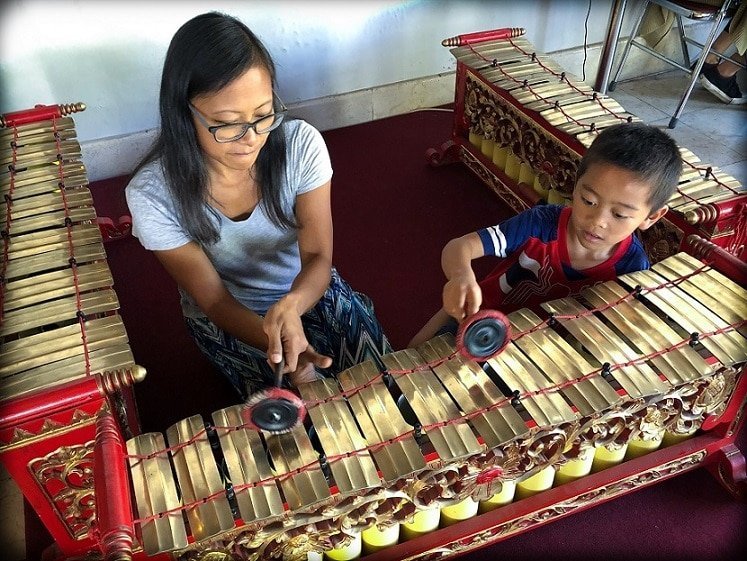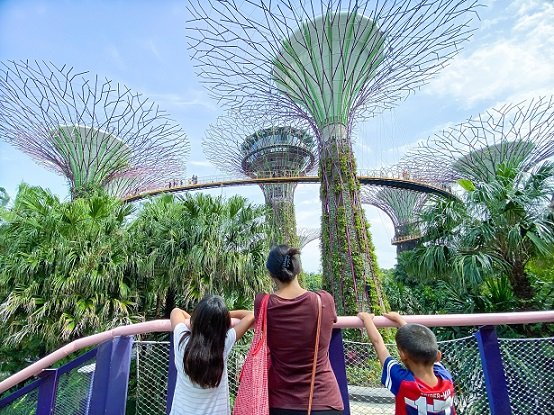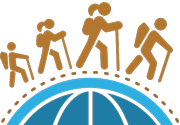Episode 3: What can kids learn from worldschooling?

In this episode of Worldschooling Q&A, Astrid and Clint answer the question: What can kids learn from worldschooling?
Worldschooling Q&A – Episode 3
Hosts: Astrid & Clint, creators of The Wandering Daughter
Title: Episode 3: What are the key skills my child will develop through worldschooling?
Episode summary
Drawing on their family’s four years of full-time travel across 18 countries and six continents, Astrid and Clint share how worldschooling helps children grow academically, emotionally, and socially. From cultural awareness to critical thinking, and from math through currency exchange to language learning through real-world immersion, they explore the practical and profound benefits of using the world as a classroom.
They also reflect on the deeper life skills their kids developed—like adaptability, empathy, resilience, and confidence—and offer stories from their travels that show how those skills were built over time.
Building knowledge through real-world learning
Worldschooling opens the door to hands-on experiences that make learning feel alive. Kids don’t just study subjects, they live them. They experience how geography, language, and math come together in daily life.
Understanding geography and culture
One of the first things kids can learn from worldschooling is how big and connected our planet really is. Traveling gives them a tangible sense of geography: they can see a country on a map, and then stand within it! A walk through a grocery store abroad, or a trip to a local market, shows how other people live, work, and eat. These moments spark curiosity and empathy, helping kids recognize both the differences and shared experiences that connect us all.
Language and communication skills
Another essential skill children learn from worldschooling is how to communicate across cultures. Picking up a few local phrases or greetings becomes a sign of respect and curiosity. Even if it’s just saying “thank you” in another language, it helps kids practice humility and connection. Families often discover that communication goes beyond words, it’s in gestures, facial expressions, and a willingness to listen and learn.
Math skills kids can learn from worldschooling
You don’t need a classroom to practice math. Kids quickly learn from worldschooling when they’re converting foreign currencies, reading train schedules, or splitting a restaurant bill in another country. These experiences make abstract math lessons tangible and relevant. Instead of solving hypothetical problems, they’re solving real ones. Math lessons happen when you’re figuring out how much is 10 euros in dollars, or how to budget for the next day’s meals.
Developing confidence, adaptability, and resilience
Beyond academics, some of the important skills kids learn from worldschooling is how to trust themselves in new and unfamiliar situations.

Each challenge, whether it’s navigating a new city, adjusting to change, or finding balance, builds lifelong confidence and adaptability.
Navigating new environments
Perhaps one of the most powerful lessons children learn from worldschooling is adaptability. Travel often involves unpredictable moments. This can come in the form of a delayed train, a new food, or a different routine. Each situation becomes a chance to practice flexibility.
When kids learn to adjust calmly, they build confidence that serves them in every part of life. Parents see this growth most clearly when kids start approaching new situations not with fear, but with curiosity and problem-solving.
Building physical and emotional strength
Beyond academics, other skills kids can learn from worldschooling is how to use their bodies and minds in new ways. From biking through a city to hiking up a volcano, physical experiences teach endurance and teamwork. Our own children became stronger swimmers while we traveled, simply because water became part of daily life.
Kids can also gain emotional growth from worldschooling. They learn when to rest, when to take risks, and when to advocate for themselves. These are all lessons that travel reinforces naturally.
Self-awareness skills kids can learn from worldschooling
When kids encounter new cultures and ideas, they start to reflect on who they are and what they value. This is another way they learn from worldschooling: through self-awareness. Reflection can come during quiet moments after a long travel day, or through conversations about what surprised or challenged them. Learning to pause and process experiences teaches children emotional intelligence, empathy, and perspective.
Strengthening critical thinking and global awareness
As children learn from worldschooling, they begin to ask thoughtful questions about how the world works.

Each experience helps them build global awareness and understand their own role within a shared humanity.
Seeing the world through many lenses
Travel naturally encourages critical thinking. Children learn from worldschooling by comparing their own customs and norms with those of other cultures. They ask questions like, “Why is school different here?” or “Why do people eat at different times?” These observations help kids develop the ability to think beyond stereotypes and assumptions.
Understanding their role in the world
Another lifelong skill children can learn from worldschooling is recognizing their impact as global citizens. Whether they’re discussing environmental issues, volunteering in a community project, or simply observing how people live sustainably, kids begin to understand how interconnected our world is. They see firsthand that choices, like reducing waste or supporting local artisans, matter.
Applying the lessons kids learn from worldschooling
The lessons kids learn from worldschooling don’t end when the trip does. They bring those insights home. They might approach school projects differently, asking deeper questions or drawing connections to global issues. They might show more patience with others or curiosity about new foods or languages. Worldschooling doesn’t replace formal education. Instead, worldschooling enhances your kids’ education, giving learning real-world meaning and purpose.
Turning experiences into lifelong learning
Families who learn from worldschooling don’t just collect memories, they grow together.

Shared experiences create stronger family bonds and a mindset of lifelong curiosity that continues long after the journey ends.
Family connection through shared growth
One of the most beautiful things families learn from worldschooling is how to grow together. This is our favorite part of worldschooling!
Facing challenges as a team (whether it’s navigating a foreign city, finding a bus stop, or trying a new dish) builds trust and connection. Kids see parents as learners too. In that way, us parents can be models for fostering lifelong curiosity.
The confidence to keep exploring
Ultimately, what children learn from worldschooling is that learning is everywhere, and it never stops! Every trip, big or small, offers lessons in patience, gratitude, and discovery. Whether you’re traveling across oceans or exploring your own neighborhood, the mindset stays the same: approach the world with open eyes and an open heart.
Submit your worldschooling questions here!
Episode guide
Academic topics to learn from worldschooling
- Kids naturally absorb geography, cultural studies, and language through travel.
- Math skills are strengthened through real-life currency exchange and budgeting.
Physical development on the road
- Travel encourages daily movement—walking, biking, and swimming.
- The kids learned to swim and solidified bike riding during their travels.
Building life skills
- Adaptability and resilience are developed by adjusting to new environments.
- Self-awareness and emotional intelligence grow through reflection and boundary-setting.
- Confidence builds as kids tackle unfamiliar situations and succeed.
Fostering empathy and critical thinking
- Exposure to diverse cultures cultivates compassion and curiosity.
- Worldschooling supports big-picture thinking and global awareness.
Chapters
00:00:00 – Introduction and welcome
00:01:04 – Today’s question: What are the key skills my child will develop through worldschooling?
00:01:11 – Geography, cultural awareness, and map-based learning
00:01:53 – Travel as a way to understand how others live
00:02:59 – Language learning and real-world communication
00:03:26 – Math through currency exchange and budgeting
00:04:20 – Physical skills: biking, walking, swimming
00:05:19 – Adaptability and resilience as life skills
00:05:51 – Self-reflection, self-care, and setting boundaries
00:06:34 – Critical thinking and global citizenship
00:07:44 – Empathy and compassion through cultural interaction
00:08:43 – Confidence through navigating unfamiliar places
00:10:03 – Pride in using new languages and trying new things
00:11:19 – Celebrating small wins and independence
00:11:59 – Final thoughts and closing
00:12:21 – How to connect and support the show
Further worldschooling resources
- 5 amazing educational benefits of travel
- 5 great reasons to travel with kids: benefits of travelling with family
- 7 valuable lessons from traveling internationally with kids
Support the podcast
- Join The Wandering Daughter on Patreon for episode transcripts, extra resources, and live office hours with Astrid and Clint.
- Follow and subscribe on Spotify, Apple Podcasts, and YouTube.
- Leave a five-star review to help others discover the podcast.
- Submit your worldschooling questions to our podcast page.





